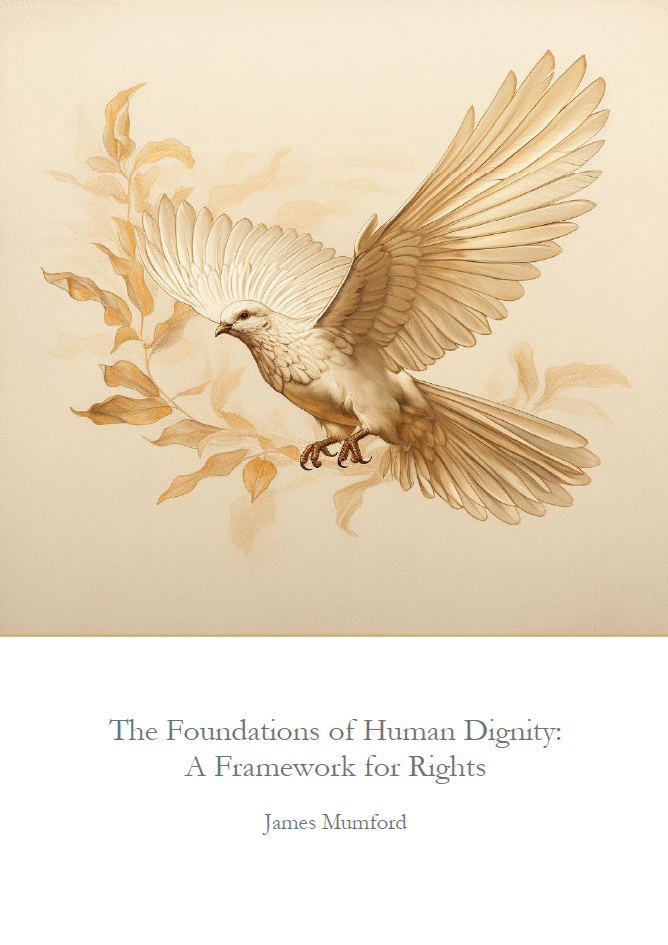The Foundations of Human Dignity: A Framework for Rights
“If we want to vouchsafe genuine rights for the vulnerable and most marginalised in our societies we must not surrender the concept of dignity derived from our religious inheritance.”
In this paper, James Mumford explores the West’s abandonment of the Judeo-Christian foundation for its understanding of human rights, and the need to restore this basis if we are to recover a truly universal understanding of human dignity.
Summary of Research Paper
The existence and importance of human rights is widely affirmed across Western societies. These rights are believed to be universal, meaning they belong to every human. But where does this understanding come from?
The Christian revolution
Human dignity is derived from the ancient foundations of the Western tradition. An authentic understanding of human dignity comes from the Judeo-Christian conceptualisation, formed in response to the devastating practices of Ancient Rome.
The Judeo-Christian notion of human dignity emerged at a time when practices like crucifixion, gladiatorial fighting, and infant abandonment, which often resulted in death for unwanted children, were widespread. Ancient Roman culture did not affirm the rights of each individual.
Ancient Rome derived its understanding of the human person from pagan interpretations. According to the Babylonian and Egyptian creation myths, only the king was made in the image of God—all other humans had a lower origin. Put simply, dignity was accorded to a subsection of the human race.
The Jewish and then Christian faiths rebuffed this notion with the radical claim that all human beings are created in the image of God. In this view, dignity is not exclusive. Rather, it is for everyone. The implication of this conceptualisation, in the words of French philosopher Simone Weil, is that there “exists an obligation towards every human being for the sole reason that he or she is a human being, without any other condition requiring to be fulfilled.”
As Christianity became more widespread, this worldview stamped out the barbarism of the ancient world and trained the modern mind to recognise the universal nature of rights.
Dignity redefined
The Renaissance and the Enlightenment challenged the longstanding Christian view of human dignity. Philosophers such as Immanuel Kant sought to identify criteria beyond the mere fact of human life on which to grant dignity—centred around the capacity for reason, autonomy, and self-determination.
Dignity has once again become exclusive, as it was in the pre-Christian world, applying only to certain members of the human race. In the words of Rowan Williams, former Archbishop of Canterbury, the logical consequence of this view is that: “The right of the imperfectly rational person, whether the child or the person with mental disabilities – may be put in question if we stipulate a capacity for reasoned self-consciousness as a condition for acknowledging rights.”
A solid foundation for rights
There is a contradiction between the modern desires for rights to be universal and for human dignity to be identified with the capacity for reason and autonomy. Most people are not willing to accept the implications of the Enlightenment view of human dignity, that some lives are more valuable than others.
Returning to the West’s Judeo-Christian inheritance provides a solid foundation for rights, where the fundamental dignity of every life is beyond question. One does not need to be religious to appreciate the moral, social, and political necessity of this worldview. Rights rested on this conception of human dignity guarantee universal rights and equality for all.

